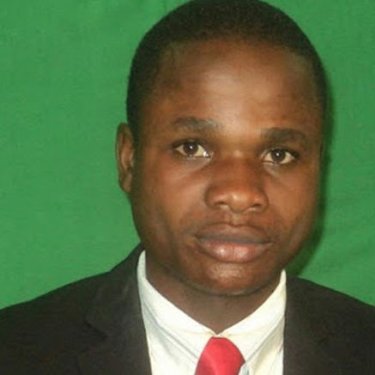RSF and JED alarmed by police colonel’s threats against Radio Okapi journalist

Reporters Without Borders (RSF) and Journalist in Danger (JED) call on the police and military authorities in Democratic Republic of Congo to put a stop to the repeated threats against journalists by their personnel and to end the impunity enjoyed by those responsible for such threats. RSF and JED also call on the United Nations Stabilization Mission in Democratic Republic of Congo (MONUSCO) to do everything possible to provide effective protection for Radio Okapi journalists who are the target of such threats.
Gabriel Wameyna, a journalist working for MONUSCO-backed Radio Okapi in the eastern province of Nord-Kivu, was explicitly and aggresively threatened by Col. Van Kasongo, the deputy commander of the Nord-Kivu police, while in a MONUSCO helicopter with Kasongo Gabriel Wameyna, a journalist working for MONUSCO-backed Radio Okapi in the eastern province of Nord-Kivu, was explicitly and aggresively threatened by Col. Van Kasongo, the deputy commander of the Nord-Kivu police, while in a MONUSCO helicopter with Kasongo and other provincial officials on 23 July.
Accusing Wamenya of spreading “lies” in a Radio Okapi report, Col. Kasongo added: “I am strict in my habits (...) I am going to pursue you to the end.” Since then, Wamenya says he has been followed by policemen while out reporting and has received telephone threats at night.
“We condemn in the strongest terms the threats against this Radio Okapi journalist and we call on the police authorities to send a clear message to their men to end such behaviour, which is unworthy of law enforcement personnel, and to punish those responsible,” said Cléa Kahn-Sriber, the head of RSF’s Africa desk.
“We also call on Col. Kasongo to immediately retract his threats, failing which we will hold him responsible for anything that may happen to Gabriel Wamenya,” JED secretary-general Tshivis Tshivuadi said.
Broadcast on 21 July, the offending report on Radio Okapi was about the severe beating received by a youth in Goma, the capital of Nord-Kivu, and his subsequent death. The director of the Nord-Kivu branch of Radio Okapi confirmed that the report was balanced and that all relevant parties were interviewed.
Wamenya interviewed the youth’s family, who said they saw him being arrested and beaten by the police. The police dumped him outside the hospital morgue, but he was still alive and doctors tried to save him until he finally died of his injuries a week later. When Wamenya then contacted the police for a comment, Col. Kasongo said he was not aware of these events but, if they proved to be true, he would ensure that those responsible were prosecuted.
After the threats were made, MONUSCO officials suggested a mediation meeting but their proposal was rejected by Col. Kasongo. He instead sent a letter to Radio Okapi and MONUSCO with an attached police report dated on the night of the event claiming that police officers found the young man in a gravely injured condition and took him to the hospital.
If the police filed this report on the night of the event, it is astonishing that Col. Kasongo was not aware of it when interviewed by Wamenya a week later.
When reached by RSF, Col. Kasongo denied threatening Wamenya, called him a liar and accused him of trying to defame the police. Paradoxically, he also said the police were very busy and did not have time to worry about Wamenya. “I am not this journalist’s keeper,” he concluded cryptically.
“We call on the MONUSCO authorities to quickly implement the protective measures that are needed to guarantee the safety of this journalist, who is currently threatened,” RSF added.
RSF has registered a total of 63 acts of persecution by the authorities against journalists in the Democratic Republic of Congo since the start of the year, 20 of them in Nord-Kivu.
Two Radio Okapi journalists, Serge Maheshe and Didace Namujimbo, were murdered in Bukavu, the capital of the neighbouring province of Sud-Kivu, in 2007 and 2008 respectively. Their murderers were never definitively identified and punished.
The DRC is ranked 152nd out of 180 countries in RSF’s 2016 World Press Freedom Index.



